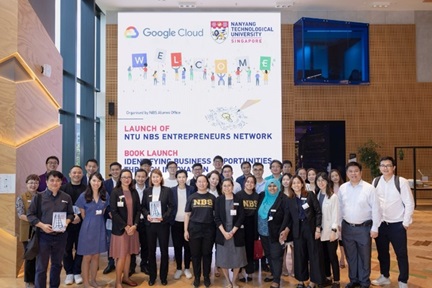Minor Issues: Money mantras my family lives by
In this commentary, NBS Advisory Board member Adj Assoc Prof Abel Ang talked about the simple approach to money that he and his wife teach their sons.
I grew up in a single-parent household, living off a primary school teacher's salary, in a four-room Housing Board (HDB) flat.
As the first person in my immediate family to enter university in the mid-1990s, I had to pay for my own university tuition fees, due to the family's financial circumstances.
Paying for university was my first lesson in personal finance and it was a rude shock.
While I received the government tuition fee loan, it covered only part of the fees each year and I had to raise funds for the self-pay portion.
I took on multiple jobs to cover school fees and my living expenses and often lived pay cheque to pay cheque. I promised myself that if I ever had children, I would teach them to manage their personal finances better.
That has been the mantra since I became a father. My elder son, R, is 19, and younger boy, S, is 16.
My wife and I teach a simple approach to money. "Live well within one's means and get a return for your investments" is what we discuss and model for our boys.
For us, to "live well within one's means" is to spend substantially less than what one earns each month. The goal is to have something left over at the end of the month from whatever income is received.
We model this by continuing to live in our HDB flat, which allows us to keep our accommodation cost low, and sharing a modest family car with my 74-year-old mother, who lives close by. These and other prudent spending choices allow us to live well within our means.
Since the boys were little, we have encouraged them to think of their monthly allowance like an income. Their allowance is supposed to cover all their expenses including school lunches and outings.
Their goal is to save some of their monthly allowance. R, who is in polytechnic, gets $250 per month, while S, who is in Secondary 4, gets $120.
They can keep their hongbao money during Chinese New Year and whatever gifts they receive for birthdays and special occasions. They are encouraged to supplement their allowance with internships, jobs and assignments.
Over the years, the boys have come up with novel ways to save more of their allowance. One memorable attempt was when S decided to go to school without any pocket money each day so he would not be tempted to spend. The bus card in his phone allows him to get around, but S would have no money if he needed to buy something at school. He explained that waiting a day to buy something from school made the expenditure more deliberate.
The boys also take responsibility for their possessions. If they lose something of value, they are expected to replace the item from their own savings.
Several years ago, R left his $1,800 laptop in a cab, on his way home from a late-night sports game. The laptop was not recovered and we made him buy a replacement computer for school from his savings. He could not afford a similar computer and bought something within his means. As parents, it hurts us to make him do that, but his ability to care for his possessions improved dramatically after the incident.
The boys receive hand-me-down phones that are usually several generations behind the latest models. What we are trying to teach them is that mobile phones are not status symbols.
The second part of the family's finance approach is to get a return from investments. This is to teach them to make their money work for them in some way.
Since the boys were in primary school, they have been allowed to make equity investments from their savings.
We have done this by letting them use my investment trading account, but with each getting a statement on how their investments are doing. They also receive the dividends and special distributions from those investments.
By encouraging our boys to read the business section of the newspaper each day, they are better able to stay up-to-date on business news and to think about how global or regional happenings affect the stocks that they own.
Minor Issues: May my kids remember the lessons of 2020 and be thankful
To bring investing closer to home, we encourage the boys to invest in things that they have experiences with. For example, they invested in CapitalMalls Asia, when it was still a listed entity, because their favourite mall was managed by the commercial trust. They were both quite sad when the trust was acquired by its parent, but were consoled by the nice return they got from exiting the investment.
An investment that has done well for the boys is Sheng Siong's share. We frequent a Sheng Siong outlet near our home, and it was S that noticed that the owner and chief executive's mobile phone number is posted outside the store. The positive shopping experiences that we had at the store and the accountability displayed by the CEO led them to invest in the company's shares five years ago. They have since seen a significant capital appreciation, especially during the pandemic, as well as solid dividend yield over the years.
When the boys were younger, we focused their attention on equity investments as it was an easy way to teach them investment basics. As they have grown older, we have let the reins go slowly. Both have their own trading accounts now and are starting to dabble in crypto-currencies and derivatives.
What started out as an effort to prepare the kids for the world of personal finance has morphed into many wonderful family discussions about money. As parents, we do not presume to have all the answers. During our discussions, we let facts and data guide and decide whose perspective is right.
Each discussion is an opportunity to help refine our boys' investment philosophy and to prepare them for the day when they manage their own finances.
While we are not there yet and the boys still occasionally make mistakes, we are glad for the few more years exploring personal finance with them before they head off to university.
By that time, we hope that they will have a better idea of how to save and when to spend wisely on friends, family and fun.
Source: The Straits Times













/enri-thumbnails/careeropportunities1f0caf1c-a12d-479c-be7c-3c04e085c617.tmb-mega-menu.jpg?Culture=en&sfvrsn=d7261e3b_1)

/cradle-thumbnails/research-capabilities1516d0ba63aa44f0b4ee77a8c05263b2.tmb-mega-menu.jpg?Culture=en&sfvrsn=1bc94f8_1)

7e6fdc03-9018-4d08-9a98-8a21acbc37ba.tmb-mega-menu.jpg?Culture=en&sfvrsn=7deaf618_1)






